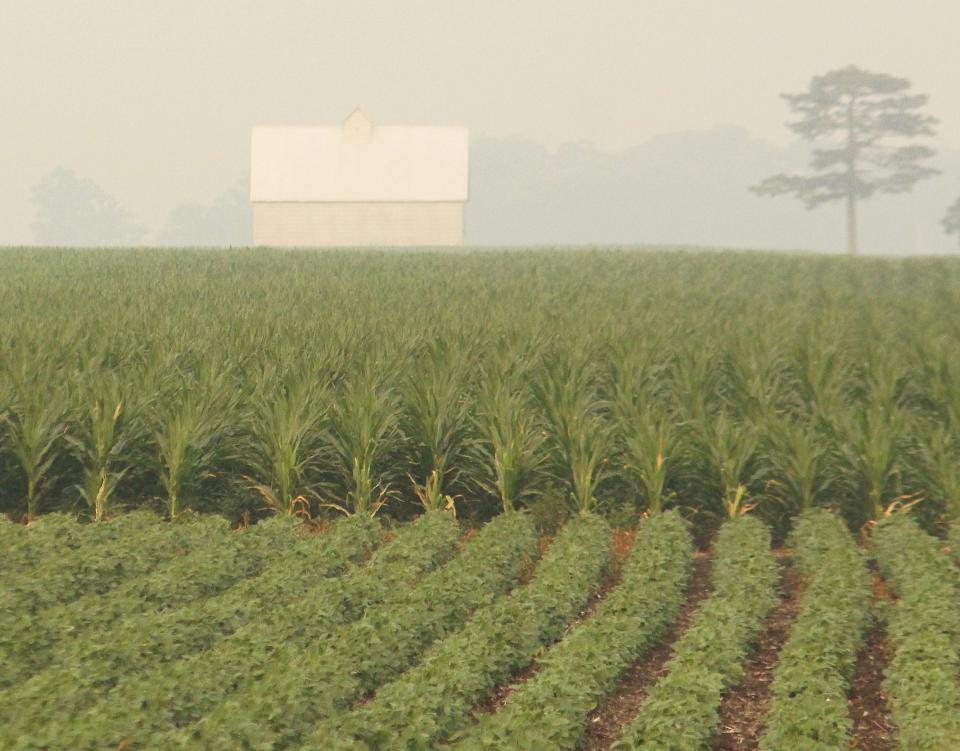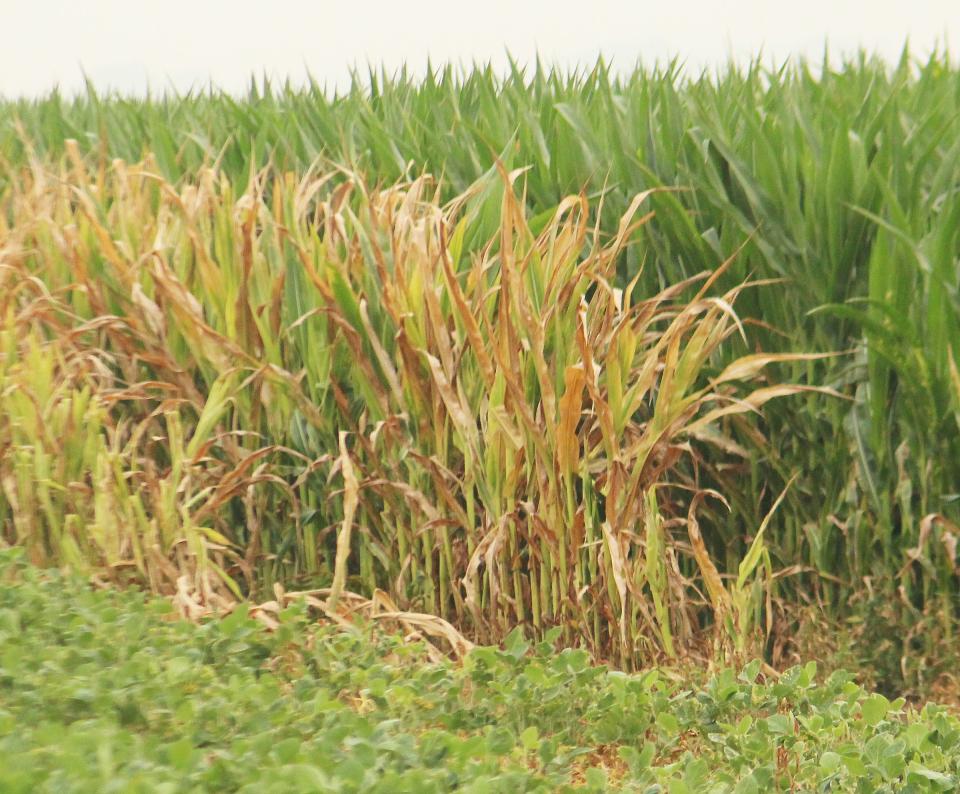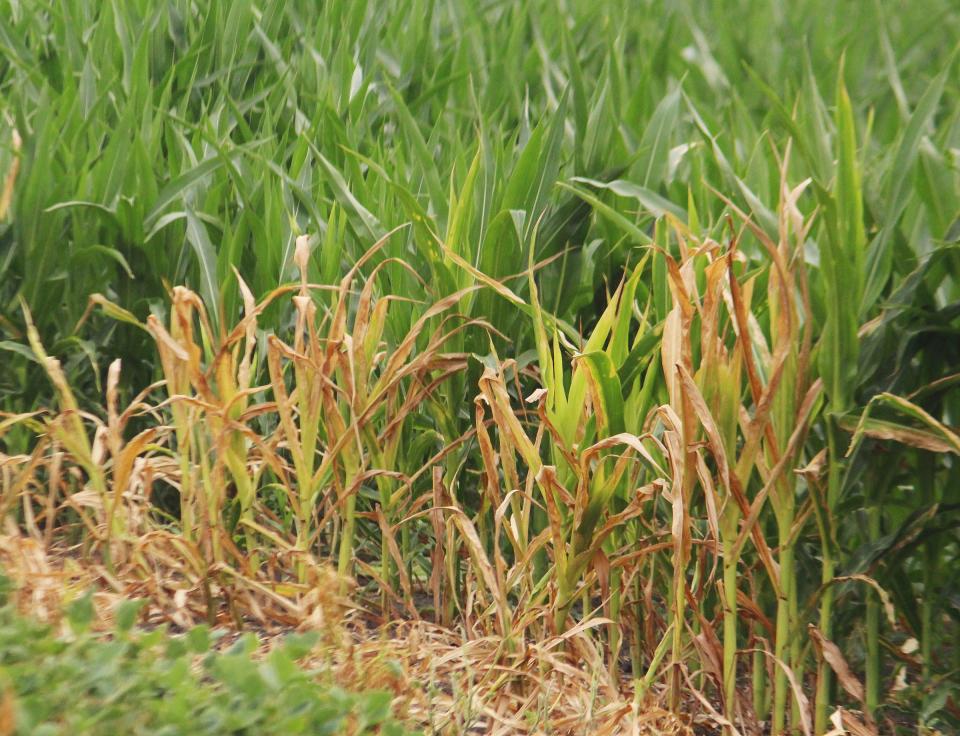Illinois farmers being impacted by severe drought conditions this summer
“It's been crazy.”
That's what State Rep. Jason Bunting, R-Emington, told the Pontiac Daily Leader recently when describing the current conditions for farming in Livingston County.
Bunting, who represents the eastern part of the county as part of the 106th House District, is also a farmer in the Dwight area. His concerns about the current conditions are two-fold — he has to be worried about his farm business as well as his constituents.
His concerns also cross between the crops in the ground and the livestock in the pastures and pens.
“We haven't seen this kind of short fall since 1988,” Bunting said. “The funning thing is, the corn has good color. The roots are going deep. But when we pollinate, if there's no moisture in the ground to help push that production into seed kernels, we're going to be in a lot of hurt.”

He added that the soybeans aren't appearing to be too bad right now, but things can get worse in a hurry.
Bunting pointed out that beans are low to the ground right now, which keeps them from creating a canopy over the soil. That canopy is important for keeping weeds to minimum and allowing for moisture to be held in the soil longer.
As if nobody could tell, Livingston County is experiencing drought conditions. In fact, the weather has been dry enough to be considered a severe drought, Chuck Collins of WEEK-TV told the Daily Leader.
“Like a lot of central and northern Illinois, Livingston County is in a severe drought,” Collins said. “That's number three on a scale of five. That's what we consider a severe drought.”
Things aren't being helped by the recent presence of the smoky haze brought on by wildfires in Canada.
“Anytime you have a drought, you are susceptible to haze and the ozone and that's what we've been seeing,” Collins said. “But now we've added the Canadian wildfires into the fray and now and then when we get a change in our upper-level weather pattern, we get that smoke to come down.
Collins said that there hasn't really been much rain since April. He said that this type of drought usually doesn't take place until later in the summer.

So, what does this mean for farmers?
Bunting said he has been speaking with Scott Halpin, the state director of the USDA Farm Service Agency, about opening Conservation Reserve Program (CRP) land. Halpin's family farms in the Gardner area. The idea for opening this land is to help with livestock production.
“As a farmer, I do not have enough hay to get me through (the summer). The pastures are burned up right now, so we are feeding hay that we would normally not be doing (at this time).
“In a normal year, our pastures can run us until mid-to-late August,” Bunting added. “We have been feeding hay through the entire summer because the pastures will not come back — lack of rain, no regrowth. In years past, we've had a reprieve. The cows could live off the pasture, but now we're already feeding hay, which will make us run out quite a bit sooner than what we have in past years.”
Chris Bunting, manager of the Livingston County Farm Bureau and younger brother to the state representative, understands the situation is not favorable.
“It's definitely a concern right now,” he said. “You look out the window and our grass look like August and it's not even July 1 yet. We need a significant system to come through as soon as possible.”
Rain has been forecast in small percentages through the middle of next week. It will be welcome, but will it be what is needed?
“It will be the case of the haves and have nots,” Collins said. “Some will get the rain and some will not. We're running almost an 8-inch rainfall deficit since April 1. It's going to take awhile to make that up.”
As for the farmers, there's only so much that they can do in such situations.
“Farmers are stewards of the land. They do the best job that they can,” Jason Bunting said. “At the end of the day, Mother Nature is the one who holds all of the cards, and we just hope she's friendly with us. So far this year, she has been fairly unfriendly.”

This article originally appeared on Pontiac Daily Leader: Illinois farmers impacted by severe drought conditions this summer

